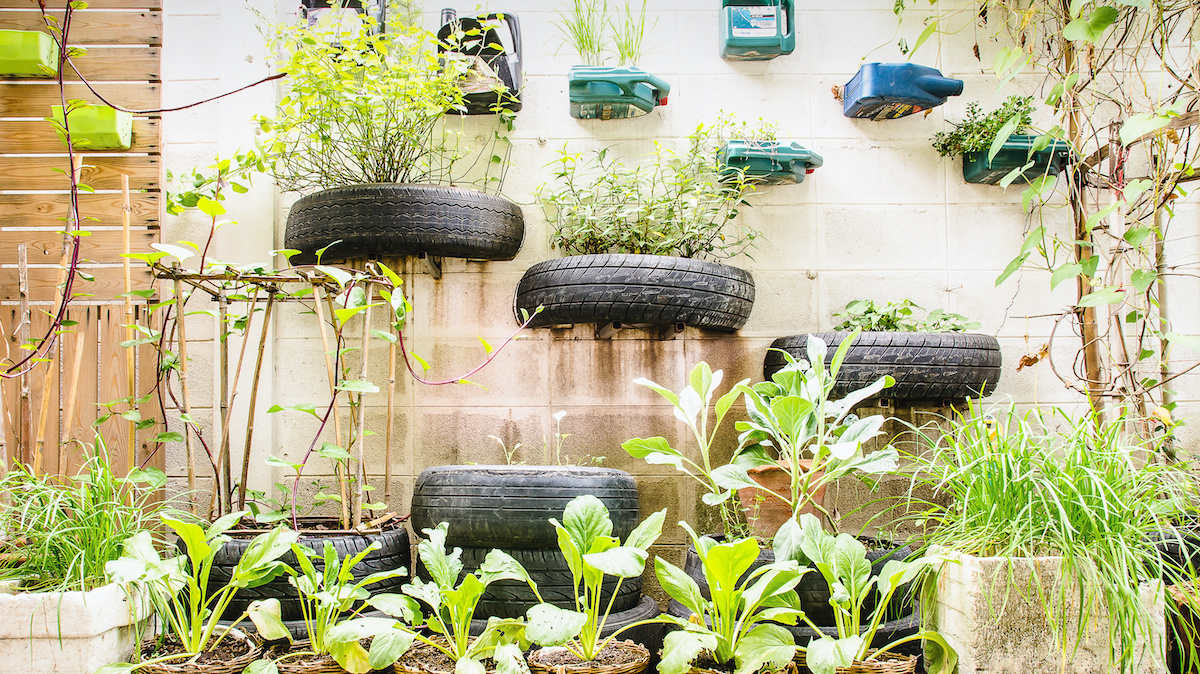City Green: Hydroponics for Urban Gardening
Welcome to the world of hydroponics for urban gardening! If you’re curious about growing plants in a small space without soil, you’re in the right place. Hydroponics is a technique that allows you to cultivate plants using nutrient-rich water instead of traditional soil. It’s a fascinating and efficient way to bring greenery into your urban environment.
With hydroponics, you can grow a variety of plants, from leafy greens like lettuce and herbs to juicy tomatoes and vibrant flowers. Whether you have a tiny balcony or a rooftop garden, hydroponics can be adapted to suit your space. Plus, it’s a fantastic way to grow your own fresh produce and add a touch of nature to your city life.
Join us as we explore the wonderful world of hydroponics for urban gardening. From setting up your own system to choosing the best plants and troubleshooting common issues, we’ve got you covered. So, get ready to embark on an exciting journey of sustainable gardening that will make your urban oasis thrive!

Hydroponics for Urban Gardening: Growing Fresh and Sustainable Produce in the City
Urban gardening has gained immense popularity in recent years as people look for sustainable ways to grow their own food. One innovative method that has taken center stage is hydroponics – a soil-less gardening technique that allows for the cultivation of plants in water enriched with nutrients. This article will dive into the world of hydroponics for urban gardening, exploring the benefits, techniques, and tips to help you start your own thriving hydroponic garden in the city.
The Basics of Hydroponics: So Much More Than Water Gardening
Hydroponics is a revolutionary method that enables plants to grow without the need for soil. Instead, plants are grown in nutrient-rich water solutions, with their roots submerged or misted with the solution. This technique allows for precise control over the plant’s environment, resulting in faster growth, higher yields, and the ability to grow plants in any location, regardless of soil quality or space constraints.
Hydroponics offers several advantages over traditional soil-based gardening. Firstly, it allows for year-round cultivation, irrespective of season or climate, making it ideal for urban environments with limited growing seasons. Secondly, as plants receive their nutrients directly from the water solution, the risk of soil-borne diseases and pests is significantly reduced. Lastly, hydroponics uses up to 90% less water than traditional gardening methods, making it a sustainable solution for water-scarce areas.
While hydroponics may sound complex, it can be broken down into several basic systems. The most common types include the nutrient film technique (NFT), deep water culture (DWC), and the ebb and flow system. Each system has its unique way of delivering water and nutrients to the plants, but they all share the common principle of providing optimal conditions to support plant growth and development.
The Benefits of Hydroponics for Urban Gardening
1. Maximizing Space: In bustling urban areas, space is often limited. With hydroponics, vertical gardening becomes a reality. By utilizing shelves, walls, or stacked systems, you can grow plants upwards instead of spreading them out horizontally, making the most of your available space.
2. Year-round Gardening: Hydroponics eliminates the limitations posed by seasonal variations. With the right setup, you can grow your favorite produce all year long, ensuring a constant supply of fresh, homegrown greens, herbs, and fruits, regardless of the weather outside.
3. Water Efficiency: Water scarcity is a growing concern in urban environments. Hydroponics is an efficient way to grow plants, using significantly less water than traditional soil-based gardening. Water is recirculated through the system, reducing waste and ensuring that every drop is used efficiently.
4. Higher Yields: Due to optimal growing conditions, hydroponic plants tend to grow faster and produce higher yields compared to their soil-grown counterparts. With proper care and maintenance, you can enjoy bountiful harvests from your urban hydroponic garden.
5. Pest and Disease Control: Soil-borne pests and diseases can wreak havoc on traditional gardens. With hydroponics, these issues become less prevalent as there is no traditional soil to harbor pests. This reduces the need for chemical pesticides, making hydroponically grown produce healthier and more organic.
Choosing the Right Hydroponic System for Urban Gardening
When it comes to selecting a hydroponic system for your urban garden, several factors come into play, including space availability, budget, and personal preference. Let’s explore three popular hydroponic systems suitable for urban gardening:
1. Nutrient Film Technique (NFT): NFT is an ideal system for beginners and small-scale urban gardens. It involves a shallow, sloping channel where a thin film of nutrient-rich water continuously flows over the plant roots. This system is efficient, cost-effective, and requires minimal water and nutrients.
2. Deep Water Culture (DWC): DWC is a simple yet effective system that suspends plants’ roots in a nutrient-rich water solution. Air stones or diffusers provide a constant supply of oxygen to the roots. DWC is popular among indoor gardeners due to its ease of use and reliability.
3. Vertical Tower Systems: Vertical hydroponic systems are perfect for maximizing space in urban gardens. These systems utilize stacked pots or towers, where plants are positioned vertically. Water and nutrients are either misted onto the roots or delivered through a recirculating system. Vertical towers allow for high plant density, making them suitable for small balconies or rooftops.
Tips for Maintaining a Successful Urban Hydroponic Garden
1. Monitor pH and Nutrient Levels: Regularly test and adjust the pH and nutrient levels of your hydroponic system. Maintaining the correct balance is essential for healthy plant growth.
2. Adequate Lighting: Ensure your urban garden receives sufficient light by incorporating appropriate grow lights. LED lights are energy-efficient and provide the necessary light spectrum for optimal plant photosynthesis.
3. Choose the Right Plants: Not all plants thrive in hydroponic systems. Research and select plants that are well-suited for indoor hydroponic gardening, such as leafy greens, herbs, and certain fruits like tomatoes and strawberries.
4. Regularly Clean and Maintain Equipment: To prevent the buildup of algae, bacteria, and other contaminants, clean and sanitize your hydroponic equipment regularly. This will help maintain optimal plant health and prevent the spread of diseases.
5. Harvest and Rotate Crops: Continuously harvest mature plants to make room for new ones. This helps maintain an efficient and productive hydroponic garden. Rotate crops to prevent nutrient depletion and promote healthy soil-less media.
In conclusion, hydroponics offers a sustainable and efficient solution for urban gardening. With its numerous benefits, including maximizing space, year-round gardening, water efficiency, higher yields, and pest control, hydroponics provides an exciting opportunity for city dwellers to grow their own fresh produce. By selecting the right hydroponic system, maintaining optimal conditions, and following essential tips, you can embark on a successful journey into urban hydroponic gardening. Start small, learn as you grow, and enjoy the bountiful harvests from your urban oasis.
Key Takeaways
- Hydroponics is a soilless method of gardening perfect for urban environments.
- It allows you to grow plants using water, nutrients, and a controlled environment.
- Hydroponics systems come in various sizes, from small setups to large-scale operations.
- Benefits include water conservation, faster growth rates, and space efficiency.
- Popular types of hydroponic systems include deep water culture, nutrient film technique, and ebb and flow.
Frequently Asked Questions
Hydroponics is an innovative gardening method that allows you to grow plants in water rather than soil. It’s a popular choice for urban gardening due to its space-saving nature and ability to grow plants year-round. Here are some frequently asked questions about hydroponics for urban gardening:
1. How does hydroponics work?
In hydroponics, plants are grown in a nutrient-rich water solution that provides them with all the essential elements they need to grow. Instead of using soil, a specially designed growing medium supports the plants’ roots. Nutrient solution is continuously circulated or periodically flooded over the roots, providing oxygen and essential nutrients. This allows the plants to grow faster and more efficiently compared to traditional soil-based gardening.
By eliminating the need for soil, hydroponics is perfect for urban gardening where space and soil quality may be limited. It also reduces the risk of soil-borne pests and diseases, making it a cleaner and more sustainable option.
2. What are the benefits of hydroponics for urban gardening?
One major benefit of hydroponics for urban gardening is its space-saving nature. Since plants are grown vertically or in compact containers, you can maximize your growing area, allowing for more plants in a smaller space. This is especially useful for urban dwellers with limited outdoor space.
Another advantage is the ability to grow plants year-round. Hydroponics provides a controlled environment where you can adjust factors such as temperature, humidity, and light to the specific needs of your plants. This makes it possible to have a constant supply of fresh herbs, vegetables, and fruits regardless of the season.
3. What types of plants can be grown using hydroponics?
Almost any plant can be grown using hydroponics. From leafy greens like lettuce and spinach to fruiting plants like tomatoes and peppers, hydroponics provides a suitable environment for a wide range of crops. It’s also worth mentioning that hydroponic gardening has been successfully used to cultivate exotic and rare plants that may require specific soil conditions or climates.
Some popular choices for hydroponic gardening include herbs like basil, mint, and cilantro, as well as leafy greens such as kale, Swiss chard, and arugula. Strawberries, cucumbers, and even flowers like roses and orchids can thrive in a hydroponic system.
4. Is hydroponic gardening more challenging than traditional gardening?
Hydroponic gardening can be more complex than traditional soil-based gardening, mainly due to the need to monitor and maintain nutrient and pH levels in the water solution. However, with modern hydroponic systems and technology, it has become much easier for beginners to get started.
While hydroponics requires some initial setup and investment in equipment, such as a nutrient reservoir, pumps, and grow lights, the benefits outweigh the challenges. Hydroponic systems offer better control over plant growth and reduce the risk of pests and diseases that are often associated with traditional gardening.
5. How much water and nutrients do hydroponic plants need?
Hydroponic plants require less water compared to their soil-based counterparts because the water is recirculated in a closed system. While the exact amount depends on the type of plants and the specific hydroponic setup, water usage in hydroponics can be up to 90% lower than traditional gardening.
Nutrient requirements also vary depending on the plants being grown. Hydroponic nutrient solutions are carefully balanced to provide the necessary macronutrients (nitrogen, phosphorus, potassium) as well as micronutrients (iron, calcium, manganese, etc.) that plants need for healthy growth. Regular monitoring of nutrient levels and adjustment of the nutrient solution is essential to ensure optimal plant development.

Cheapest Hydroponic System For Everyone | Under $1/100 Rs
Summary
So, in summary, hydroponics is a great way to garden in urban areas. With this method, you can grow plants without soil, using water and nutrient solutions instead. It’s efficient, saves space, and allows you to grow plants all year-round. Plus, it’s a fun and educational way to connect with nature and learn about plant growth. Whether you have a small balcony or a rooftop, hydroponics can be a sustainable and rewarding way to grow your own veggies and herbs. Give it a try and see the magic of urban gardening come to life!

